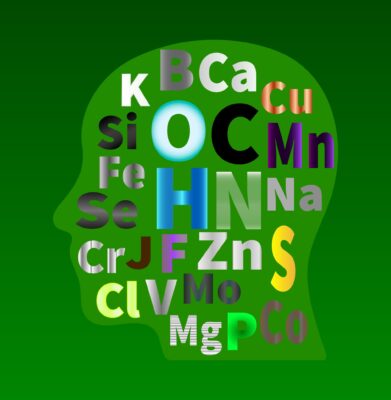This past week, I listened to an episode of one of my favorite podcasts, This Jungian Life. The show features three Jungian analysts talking about all sorts of topics with a psychological perspective – fascinating stuff (at least for me anyway). The episode was called “The Alchemy of Writing,”* which, of course, made my little blogger’s heart skip a beat. It was all about the transformative nature of writing – any sort of writing – from journaling to authoring nonfiction books to emails and texts.
–
A definition of alchemy I found:
–
a seemingly magical process of transformation, creation, or combination.
–
I’m always up for a magical process of transformation – you?
–
Here’s what else caught my attention – through a variety of examples, the hosts describe what happens in the brain when we write (particularly handwriting as opposed to typing, although both are effective). They noted that writing seems to assist with emotional regulation by taking emotional signals that initially don’t have language assigned to them out of the amygdala (the part of the brain that has historically been associated with “fight, flight, or freeze”) and into the self-regulating part of the brain. And it doesn’t even matter how much one writes. Simply writing, or reading, a word or phrase helps with the process.
–
For most of us, written words create structure – they are symbolic representations of experience. I wrote a while back about the power of spoken and/or thought words – how much more power could we tap into with writing what we notice? We understand instinctively that processing things with writing makes a difference. It makes total sense when you think about journaling about gratitude, or blasting out that angry message to your boss in your notes app, or telling off that annoying woman on the PTA board (the message you hopefully burn, tear up, or delete). There’s something about putting words outside of our heads that gives us a way to separate from the emotions. Things that can’t be put into language tend to float around in our heads incoherently, jumbled, disordered.
–
OK, Sara, where are we going here? I’m wondering what could happen if, when you are overwhelmed with a space or a set of tasks, you placed yourself in connection with writing.
–
And yes, I recognize that a to-do list is a written representation of the tasks (and it certainly helps to have it). I’m speaking of writing more about what you feel:
–
- “When I look at my list of tasks, I feel like I don’t know where to start. And if I start at the top, I might miss something more important, and I could get myself into trouble. I hate thinking I’ve missed things.”
- Or: “When I open this drawer, I see tons of things I probably shouldn’t keep, but I’m resistant to letting go of them because I feel guilty that I bought them (or picked them up because they were free).”
- Or: “To start this project, I feel like I have to have the perfect conditions and supplies, and if I don’t have them then I think whatever I do won’t make any difference, because it won’t be anything like what I have cooked up in my head. It feels frustrating.”
–
As a starting point to see how this might work, I tried it for myself. I have a closet that desperately needs to be gone through and purged. It was the last one filled when we moved into the house. Much care was taken in other areas, like the kitchen and laundry room, but when I got to this last closet on the second floor, well…I was kind of pooped. I basically plopped everything that didn’t fit anywhere else: crafty stuff, leftover costume pieces, old Destination Imagination supplies, photos, you name it. Once other family members caught on, they plopped things in it, too (plopping is contagious). I’ve been avoiding it, and another purpose for it has never really presented itself. It’s a bonus space. A shame to waste it, and have some of my energetic field drained (because the state of that closet is often in the back of my mind).
–
It’s like Wordle, only…not.
–
Just writing about it here seems to be making it more of a priority. And truth be told, writing about it makes me feel a little silly for waiting so long to deal with it. It’s OK, I can feel silly.
–
But also, I took out a sheet of paper, sat in front of it, and started jotting things down. It isn’t anything profound or fancy. You don’t have to be Faulkner or Hemingway to write down a few thoughts:
–
“Not much light to work with, and I can’t even see what’s in the back. Probably 75% of the stuff here can go away. I don’t feel the least bit sentimental about any of it – in fact I’m irritated. It would be good to have extra space for blankets. That old microscope set needs a new home, and there’s a Doctor Who coloring book that’s never been touched. It will take a little time. I have boxes I can use and time next Saturday…” (there was more, but I think you get the idea).
–
Prior to writing, the closet just felt like a formless void of uncomfortable, disappointing decisions. Now it’s something more tangible and work-with-able. If I stop to think about it, there was indeed a bit of an alchemical transformation that took place there.
–
What space or project could you transform with a little writing this week?
–
p.s. Anyone in the market for a Doctor Who coloring book?
–
*Lee, Joseph, Marchiano, Lisa, Stewart, Deborah, hosts. “The Alchemy of Writing.” This Jungian Life, iTunes app, 14 April 2021.





As I’m probably the biggest Doctor Who fan among your readership, and as we have our own two-person professional organizers’ summit coming up, I think you know where a Doctor Who coloring book belongs. 😉 The bigger question is, is it bigger on the inside?
Great post, and I completely agree. As you said, “Things that can’t be put into language tend to float around in our heads incoherently, jumbled, disordered.” Writing allows us to build a framework for our thoughts.
Ah, wonderful! And this knowledge gives me the additional motivation to get started on the closet. Thanks for stopping by!
I like what you said about the physical act of writing, Sara. I always write out my daily list – yellow pad of paper and a pen. I remember things better when I write them down. I also understand where I’m headed – what I want to accomplish and what absolutely has to be done before I call it a day. Taking the time to write my list focuses my thoughts and also lets me celebrate what I accomplished during the day – since I make my list at night. Encouraging people to write is a wonderful thing.
I like what you’re saying about celebrating the accomplishments, Diane. So many of my clients forget to do that, and that’s another great use of writing as a strategy. Thanks for commenting!
I always have a list or two going – it clarifies my thinking and I use it as a brain dump. If it’s on a list I don’t have to worry about it getting forgotten.
It’s kind of like having an external hard drive for our brains, isn’t it?
I have decided to make it more of a priority to start writing things that I need to do down. It is making me think about the amount of time I am wasting just doing ‘busy’ work instead of focusing on what I need to do. You know I’m going to listen to that podcast now, right?
I hope you’ll let me know what you think of the podcast, Margarita!
I love writing and have experienced a lot of what you described through regular blogging and in my personal journal. When I don’t know what’s going on ‘upstairs,’ I often pick up my journal and write. The pen leads me over the page to make sense of the things that make no sense. And sometimes, I don’t figure it out. Sometimes I am simply noticing, as you so beautifully described. It’s in the process of noticing, naming, and describing that some magic (or at least some new insights) can occur. Love your process, your post, AND your brand-spanking-new website! Just lovely!
I think that picking up the journal and starting to write speaks to how instinctive it is for many of us – and I love that your pen leads you! On the rare occasions that I actually go back and look at where my pen led ME I notice interesting things that at the time I didn’t totally process. Thanks for the comment, and the kind words, Linda – I’m excited about the site. 🙂
Ah, so that’s where you were going with this. Yes, the thoughts you uncovered once you focused on your closet help to clarify the situation — how it would benefit you to purge it, why you haven’t addressed it sooner, etc. — which serve to reveal a path forward. This is what we do with organizing clients verbally, in person, while looking at the closet together. We help them focus on it. I have often asked a client to think about a space we plan to address next time and list their thoughts (mostly so they don’t forget what they are and can tell me later, and aren’t just winging it when I show up) — what their goal is for that space, how they feel about it now, and how they would rather feel about it, etc. And I agree that writing it down would be an excellent DIY exercise, a bit of self-coaching for them (and for us…um, I have a space in mind…).
Well, we will see how writing it down makes a difference when I start to work with the space, yes? I think because I’m very much a read/write processor this is second nature, so I’m curious to see how it might work for people who don’t write things down so much. I’m also curious to see if it works for what you have in mind. Keep me posted. 🙂
What I have in mind will require a flow chart. Repurposing a room. Moving stuff out; moving other stuff in; somehow accommodating and not upsetting the cat who lives in that room. Not kidding!
I think the cat might need to do a little journaling about this too.
Love writing and how it clarifies my mind – what seemed overwhelming when rattling around my brain gets cut down to size when I put pen to paper. I’ve also found that writing something down in my old school paper planner is more helpful for me than digital “writing” of appointments. Something about the physical connection of pencil (for flexibility) and paper means the information gets into deeper long term storage in my mind.
Yes, I still like paper planners too. So I use my digital calendar(s) through the week, and review everything in a paper planner over the weekend. More like true “planning” as opposed to “calendaring.” Thanks for commenting, Lucy!
This is a great idea for those of us who work better with the written word. I made a list only this spring of the decluttering tasks I need to do and although I’ve done some decluttering, I haven’t done anything on that list. Attaching emotions to them just might do the trick!
I find I almost always work better with words. It might be interesting to look back at your list and ask yourself about what you chose to declutter instead. Sometimes things I think really need organizing aren’t actually the priority when I have some open time to work on them. Thanks for stopping by, Janet!